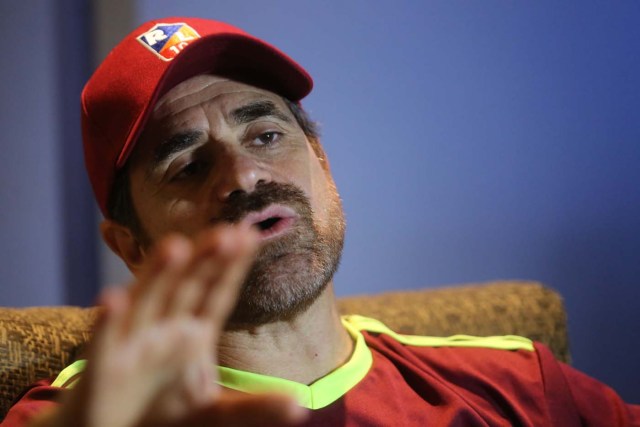
The Chavista Governor of Carabobo, Rafael Lacava, indicated last Sunday night, June 11th, that in the coming days he will improve the distribution of fuel in the state. In the past week, drivers have spent between five and eight hours queuing for miles at gas stations to fill up the gas tank.
Correspondent lapatilla.com
In a video posted on his Instagram account, Lacava asked the workers at the El Palito Refinery, located in Puerto Cabello, to “do their best” to resume production at the refinery.
“I could make a comparison of what we are experiencing today in the country with what happened in 2002. Who started up this refinery? It is going to be their turn again, as they did in 2002, so that there is stability in the country and so that Venezuelans have the peace of mind knowing that the oil workers, we, are going to guarantee fuel and peace of mind for the operation of this country,” said Lacava in a meeting with the workers of El Palito.
“I deeply believe in the workers at our Palito refinery and I know that in the coming days things will improve on the issue of fuel distribution in our state. Nobody here gives up. Long live Carabobo,” was the text with which Lacava accompanied the video’s publication on Instagram.
PDVSA published on its Twitter account that the Minister of Petroleum and President of PDVSA, Pedro Tellechea, accompanied by the Vice President of Fisheries, Héctor Obregón, together with the Governor of Carabobo, Rafael Lacava, toured the areas of the FCC Unit to evaluate operational conditions of the El Palito Refinery.
This Sunday, the deputy to the official National Assembly, Willian Rodríguez, informed through his Twitter account, the start-up of the Fluid Catalytic Cracking Unit (FCC), at the El Palito Refinery. “We will have the gasoline that the country needs,” he added.
According to a publication by the Reuters news agency, the plant’s fluidized catalytic cracking (FCC) unit has restarted with an output of 20,000 barrels per day (bpd), as stated refinery’s workers. It has a production capacity of 146,000 bpd.
Producers in crisis
This Monday, June 12th, users of service stations in Valencia and Naguanagua reported that the lines to fill up on fuel at service stations have decreased.
In the west of Carabobo, agricultural producers denounced that they have not been able to prepare the land for planting before the arrival of the winter cycle, as a result of the lack of fuel that they have suffered for more than a year and that worsened in the last week.
Jesús Castro, producer and President of the Association of Producers of Fruits and Other Agricultural Crops (Afocar), reported that around 75% of producers do not have access to fuel through distributors. He warned that all production sectors associated to agriculture are affected, but considered that at this time seed growers and poultry producers should be prioritized.
“For us it is important that PDVSA, the ministry, unions and mayoralties set up a work table, so that the decision is made to bring the required amount of fuel and provide the service and access through the distributors to all producers, not only to those that are registered there,” he said while asking that a registry be opened immediately through the distributors and that fuel distribution be coordinated in order of priority.